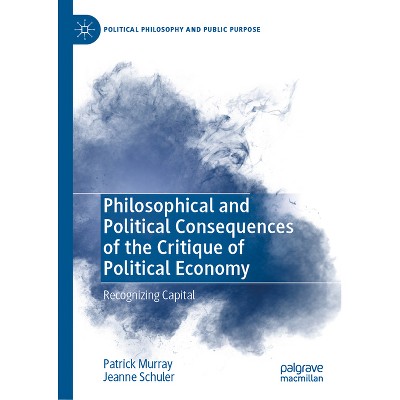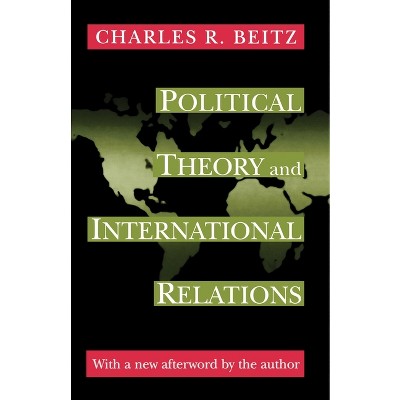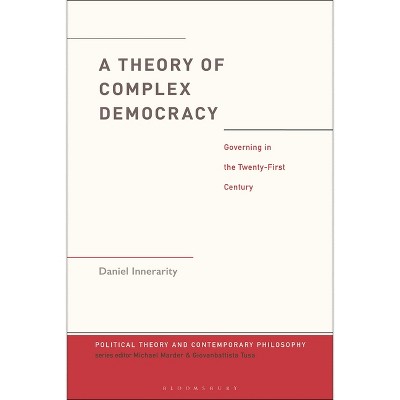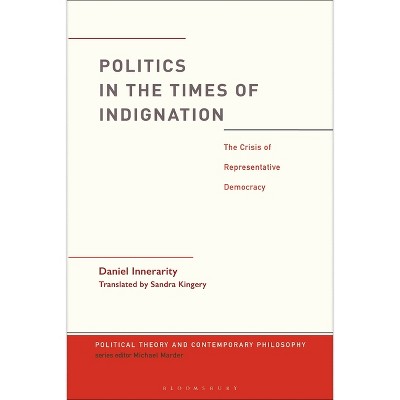False Moves in Philosophy and Social Theory - (Political Philosophy and Public Purpose) by Patrick Murray & Jeanne Schuler (Hardcover)

About this item
Highlights
- This book considers diverse philosophical topics unified by the identification of false moves commonly found in modern philosophy, mainstream Anglo-American philosophy, and social theory.
- About the Author: Patrick Murray is John C. Kenefick Faculty Chair in the Humanities, Creighton University, USA.
- 406 Pages
- Political Science, General
- Series Name: Political Philosophy and Public Purpose
Description
Book Synopsis
This book considers diverse philosophical topics unified by the identification of false moves commonly found in modern philosophy, mainstream Anglo-American philosophy, and social theory. The authors expose the sources of fundamental problems that recur in philosophy--basic problems with what the authors call "factoring philosophy." Factoring philosophy fails to attend to the phenomenological task of determining when what is distinguishable is separable and when not. Consequently, factoring philosophy makes phenomenological mistakes--false moves--when it treats as separable what is only distinguishable. Analytic philosophy is prone to false moves when it fails to recognize that phenomenology is the necessary complement to analysis. There is nothing wrong with analysis--we might as well give up thinking as give up analysis--and nothing is wrong with the values prized by analytic philosophy. As Hegel observed, "philosophizing requires, above all, that each thought should be grasped in its full precision and that nothing should remain vague and indeterminate." Ultimately, this book contends that false moves prevail in philosophical analysis and social theory when they neglect their phenomenological foundations.
From the Back Cover
This book considers diverse philosophical topics unified by the identification of false moves commonly found in modern philosophy, mainstream Anglo-American philosophy, and social theory. The authors expose the sources of fundamental problems that recur in philosophy--basic problems with what the authors call factoring philosophy. Factoring philosophy fails to attend to the phenomenological task of determining when what is distinguishable is separable and when not. Consequently, factoring philosophy makes phenomenological mistakes, false moves, when it treats as separable what is only distinguishable. Analytic philosophy is prone to false moves when it fails to recognize that phenomenology is the necessary complement to analysis. There is nothing wrong with analysis--we might as well give up thinking as give up analysis--and nothing is wrong with the values prized by analytic philosophy. As Hegel observed, "philosophizing requires, above all, that each thought should be grasped in its full precision and that nothing should remain vague and indeterminate." Ultimately, this book contends that false moves prevail in philosophical analysis and social theory when they neglect their phenomenological foundations.
Patrick Murray is John C. Kenefick Faculty Chair in the Humanities, Creighton University, USA.
Jeanne Schuler is Professor of Philosophy, Creighton University, USA.
About the Author
Patrick Murray is John C. Kenefick Faculty Chair in the Humanities, Creighton University, USA.
Jeanne Schuler is Professor of Philosophy, Creighton University, USA.











